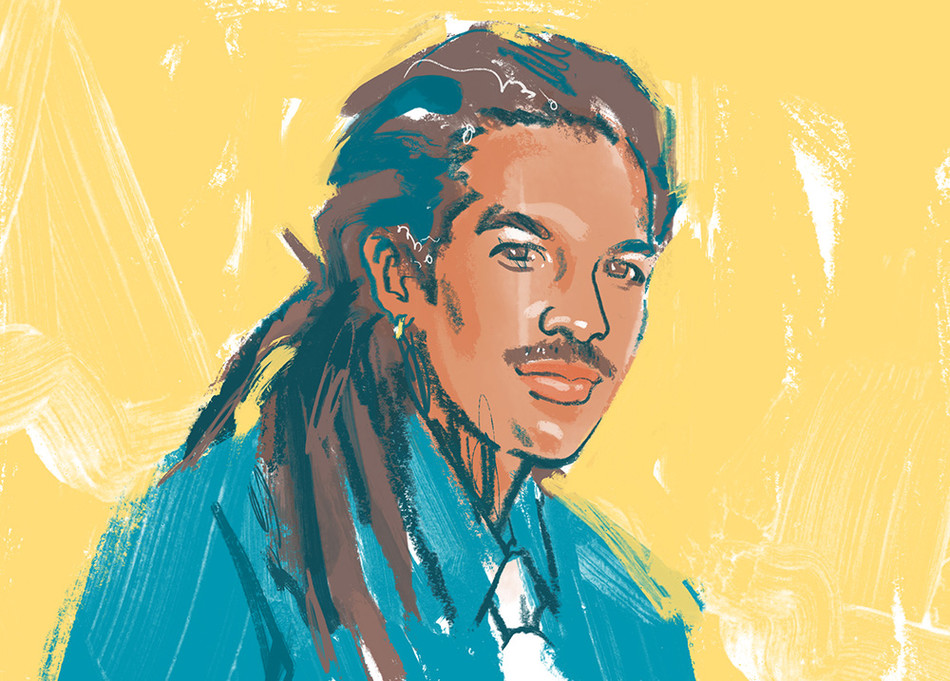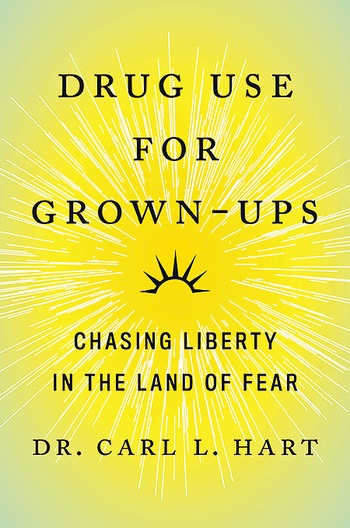Carl L. Hart, the Ziff Professor of Psychology at Columbia, studies the effects of drugs on the mind and body. In Drug Use for Grown-Ups, he critiques current drug laws and argues that recreational drugs can enrich the lives of responsible adults.
What is your book’s fundamental argument?
The most vital argument focuses on the concept of liberty as guaranteed by our Declaration of Independence. The Declaration states that each of us is endowed with certain rights, including “Life, Liberty and the pursuit of Happiness,” and that governments are created for the purpose of protecting these rights. I use the topic of drug use to show how we, as a society, are failing to live up to the country’s noble promise to all citizens. Hundreds of thousands of Americans are arrested each year for pursuing pleasure and happiness by using drugs. The book also demonstrates that US drug laws and their enforcement are racist. Black people are four times as likely to be arrested for marijuana possession as their white counterparts, even though the two groups use and sell drugs at similar rates.
You used to believe that drug use was a major cause of violence in urban neighborhoods, like the one where you grew up. How has your thinking changed?
I believed, like many Americans, that drug addiction — crack addiction, specifically — was the cause of high unemployment rates and that it made people violent. I no longer believe in this harmful fantasy. The problems that plagued my community had everything to do with poverty, inadequate access to affordable health care, lack of economic opportunities, racism, and police brutality, among other instances of long-standing governmental neglect and abuse. In other words, drugs didn’t cause the problems, they exposed them.
What role did your research play in altering your views?
It played a huge role, of course. My research entails giving drugs to people and carefully studying their immediate and delayed responses. The data did not support my preconceived notion that drugs were bad, period. For example, research participants consistently reported feelings of magnanimity, joy, empathy, euphoria, and other positive moods after taking drugs such as MDMA (a.k.a. Molly, Ecstasy), methamphetamine, and even crack cocaine. I have given thousands of doses to research participants and have never observed anything remotely resembling violence or aggression following the administration of crack or any other drug.
These data are ignored and distorted in order to keep the public fearful and outraged about drug use, and Black and brown bodies continue to pile up behind bars. This is dead wrong.
With drugs such as heroin and methamphetamine, you say that 10 to 30 percent of users become addicts. Isn’t that still a considerable risk?
It’s not a tiny number. But what I wanted the reader to know is that the vast majority don’t become addicted. So we have to take the focus off the drug and look at other issues in people’s lives to understand why they become addicted. The effects produced by drugs depend upon multiple factors, including dose, the method used to take the drug, and the setting in which drug use occurs.
You have sampled many controlled substances, including heroin, which seems like the scariest of drugs.
Heroin is just another opioid, no more or less scary than other drugs.
Would you like to see all these drugs legalized and regulated?
Yes. They should be regulated and legally available for adult consumption. This would create numerous jobs and generate hundreds of millions of dollars in tax revenue. Legal drug regulation would markedly reduce drug-related deaths caused by accidental overdoses.
A large proportion of these deaths are caused by adulterated substances purchased on the illicit market. A regulated market, with uniform quality standards, would virtually put an end to contaminated drug consumption and greatly reduce fatal accidental drug overdoses.
Are you hoping other professionals come out about their drug use?
I hope people see that current laws violate the spirit of the Declaration of Independence. I hope readers also see that our drug laws are ruthlessly unjust, especially because of how they are weaponized against Black people and the poor. Martin Luther King Jr. aptly noted that “one has a moral responsibility to disobey unjust laws.” I take this responsibility seriously.




